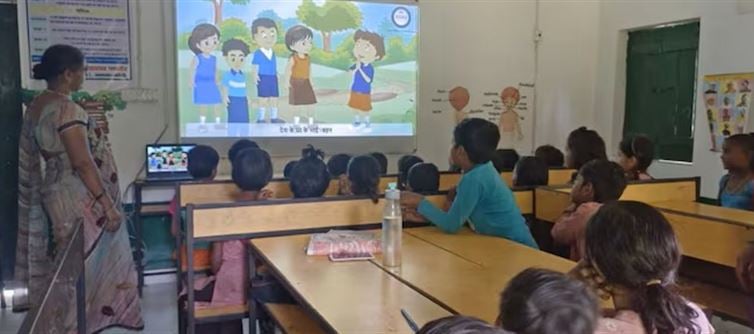
By 2050, the classroom you remember won’t exist — and in india, that’s both terrifying and overdue.
For decades, indian schools have drilled children into memorizing answers, suppressing creativity, and punishing curiosity. The colonial-era model, with rigid syllabi, age-based grades, and board exams as destiny, has left students unprepared for a world that no longer exists.
Now, AI and global educational trends are storming the gates. students will soon be assessed not on what they memorize but on what they imagine, create, and orchestrate. india can either lead this revolution or be crushed under its own outdated system.
1. Rote Learning Is Dead, Creativity Is King
By 2050, memorizing chapters won’t matter. students will be judged on imagination, problem-solving, and interdisciplinary thinking, rendering India’s current exam-obsessed system obsolete.
2. AI Will Amplify the Gap
In Noida, a 13-year-old learns Spanish on YouTube, masters AI art tools, and writes better prompts than tuition teachers. Meanwhile, in rural UP, children still struggle with subtraction. india isn’t behind — it’s bifurcated, creating a new inequality crisis.
3. Teachers Must Evolve or Obsolete
Future educators won’t dispense content; they’ll be AI-savvy mentors, ethics guides, and project coaches. Without massive retraining, indian schools risk producing adults who cannot think, innovate, or lead.
4. Exams Must Die
One-size-fits-all boards and standardized assessments reward memorization, not ingenuity. india needs AI-powered, formative assessments that track growth, creativity, and applied learning.
5. Digital Divide Is the Silent Killer
No AI revolution can succeed if half the students lack Wi-Fi, devices, or wallet PLATFORM' target='_blank' title='digital-Latest Updates, Photos, Videos are a click away, CLICK NOW'>digital literacy. Community hubs, offline-first tools, and equitable access are non-negotiable prerequisites.
6. Interdisciplinary Learning Is the Future
students must be allowed to mix subjects: history with coding, climate science with literature, and sanskrit with robotics. Only such freedom will produce innovators capable of thriving in a post-AI world.
7. Atmanirbharta in Education
india must not blindly copy Western models. The future of learning should amplify indian pluralism, languages, and philosophy, while harnessing AI to strengthen our cultural and ethical values.
8. From students to Orchestrators
Tomorrow’s learners will not “do the work” themselves — they will direct AI teams, manage creative projects, and make critical ethical decisions, shifting humans from doers to orchestrators.
9. Exam Obsession Threatens Leapfrogging
india has the population, wallet PLATFORM' target='_blank' title='digital-Latest Updates, Photos, Videos are a click away, CLICK NOW'>digital infrastructure, and talent to leapfrog into future-ready education. But bureaucracy, exam obsession, and inertia risk holding the nation back while the world races ahead.
10. Purpose Beyond Marks
Howard Gardner reminds us: education must transcend grades. By 2050, success will be measured not by board results but by critical thinking, imagination, and ethical leadership. india must act now or be left behind.
👉 India’s classrooms are on the brink of extinction.
👉 Without radical reform, AI will leave traditional schools behind, deepening inequality and stifling creativity.
👉 The future of learning isn’t just content — it’s curiosity, ethics, interdisciplinarity, and human-AI collaboration.




 click and follow Indiaherald WhatsApp channel
click and follow Indiaherald WhatsApp channel